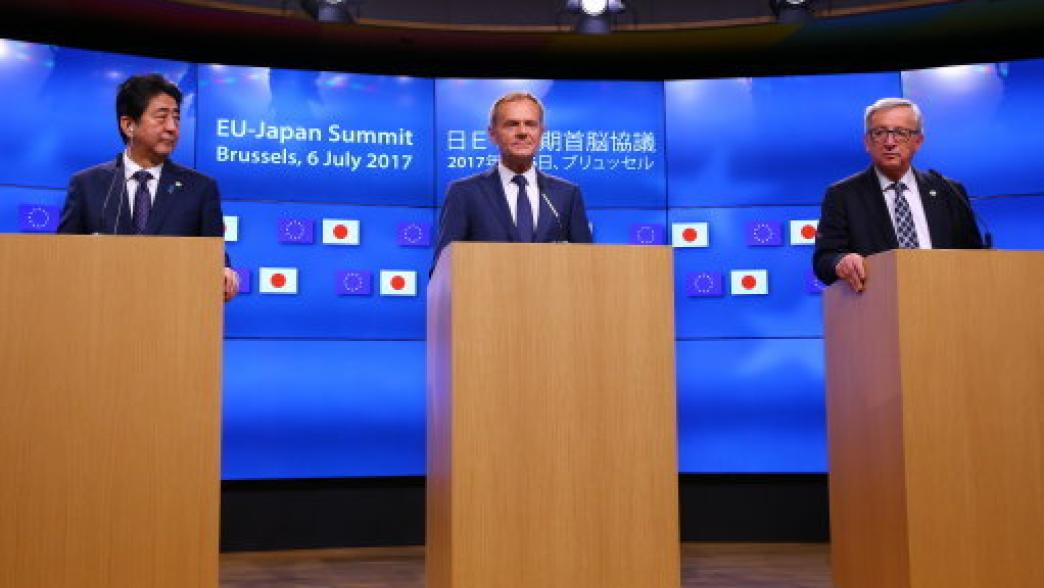
Jill Rutter explains how yesterday’s two announcements from the European Union have turned up the heat on UK negotiators by underlining the risks the UK faces in leaving – and the potential benefits it may be forgoing.
Michel Barnier, as chief Brexit negotiator for the European Union (EU), set out in no uncertain terms why “le no deal” was, in his view, such a bad option for the UK.
He set out in detail what the implications were of leaving the internal market and the customs union.
He emphasised that it was “impossible to leave the single market and keep all of its benefits” and how it was also impossible to “leave the single market and build a customs agreement to achieve frictionless trade.”
Barnier proceeded to set out the frictions that UK exporters might expect in trading with the remaining 27 EU member states:
- Staying in the internal market, but leaving the customs union - this would mean a new regime of customs procedures and controls, including verifying preferential rules of origin
- A customs agreement without the internal market - this would still mean customs procedures and controls to check conformity with European standards
Leaving the EU would make the UK a ‘third country’ facing, for example:
- No access to member states’ facilities for VAT declarations
- 100% inspections for imports of animals or animal products
With no deal, Barnier spelt out what the UK would face:
- Tariffs – 10% on cars, an average 19% on alcoholic drinks and an average 12% on lamb and fish. The EU is the major export market for UK firms in these industries
- Heavy border controls – these would be particularly damaging for “just in time” businesses who would need to hold their stock for 3-4 days instead of just a few hours as the case is now. This would require more investment in warehousing and would see an increase in both transportation costs and associated risks
As Barnier was spelling out the benefits of EU membership that the UK might lose through Brexit, the EU was also setting out the potential future benefits for the remaining 27 EU member states.
This year has already seen the conclusion of the EU’s comprehensive economic and trade deal with Canada and earlier this week the union signed a customs cooperation deal with New Zealand – a potential forerunner to a free trade agreement.
And then yesterday, in the run-up to G20 summit in Hamburg, the EU also unveiled its political agreement for a new and ambitious free trade agreement with Japan, the world’s fourth largest import market.
This agreement has been under negotiation for four years, but is now scheduled to be concluded by the end of this year.
The key elements of the EU-Japan Free Trade Agreement (FTA) are:
- Elimination of “the vast majority of duties” (over a long transition period)
- EU access to Japanese markets in agricultural products
- The opening up of services and government procurement
The benefit of this agreement to EU exporters is valued at around €20bn.
This looks like the sort of trade deal the UK’s Department for International Trade would like to negotiate. Access to - the very closed - Japanese food and drink market has been an objective of UK trade promotion for decades. The EU-Japan agreement also includes services, which sets a good precedent and is particularly important for financial firms in the City of London.
But there is a problem. This deal may not be ratified by the time the UK leaves the EU. Even if it were, the UK would lose access to the agreement as soon as it leaves the EU.
The Japanese government have stressed their interest in ensuring that Brexit does not disrupt UK trade with Japan. Likewise, they do not want Japanese businesses who base their European operations in the UK to be disrupted by Brexit.
But that would mean adding the EU-Japan agreement to the list of EU free trade deals the UK needs to renegotiate and have ratified before it leaves the union if it is to preserve the benefits it now has.
Barnier brought the stick, Tusk brings the carrot
With his colleague Barnier being bullish on the prospects for the UK achieving ‘the exact same benefits’ or ‘frictionless trade’ after Brexit, European Council President Donald Tusk could not resist a thinly veiled jibe as he announced the EU-Japan agreement: “We have heard statements saying that it isn’t worth being in the European Union as it is easier to do global trade outside of the EU. Today we have shown that this is not true, that the EU is more and more engaged globally.”
- Supporting document
- IFGJ5448_Brexit_report_160517_WEB_v2.pdf (PDF, 746.7 KB)
- Topic
- Brexit